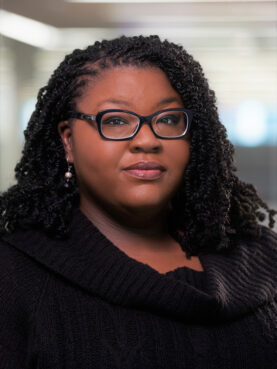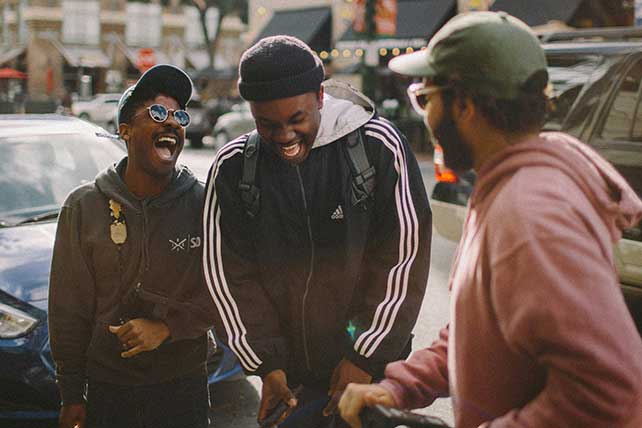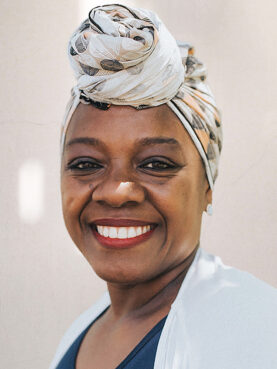“When we think about the Civil Rights Movement, when we think about Reconstruction and African Americans coming out of slavery, it was important to identify with these institutions for social reasons and for economic reasons,” said Teddy Reeves, curator of religion at the National Museum of African American History & Culture. “It was a way of safety. It was a way of community. It was a way of creating meaning out of what was going on in their everyday lives.”
Felicia Murrell. (Courtesy photo)
For Murrell, some of her most formative memories are of her grandmother starting each day sitting in her chair, Bible in her lap, glasses slipping down her face. The stories about God’s deliverance that have been handed down from generation to generation, Murrell said, are deeply rooted in the Black American experience.
“I do think a lot of the overcoming of hardships, a lot of the way that people endured, was through their belief in God, that God would make a way somehow,” said Murrell. At testimony services in the Black church, Murrell said, it’s common for folks to share stories about tragedy happening in their life, and then to say “but God!” to indicate how God intervened on their behalf.
“I think you have people looking for deeper answers,” she said. “They’re looking for a faith that can sustain and hold their mystery.”
R. Khari Brown, a sociologist at Wayne State University in Detroit, told RNS that while the educational attainment of some Black Americans could be impacting Black nones’ departure from institutional religion, others struggling with poverty may also be impacted if they are more focused on survival than attending worship services.
“So one pattern is, people who are highly educated tend to be unaffiliated, which is the case among all groups,” he said. “But for African Americans, I think the role of poverty, and social instability linked to poverty… is also correlated with not attending.”
Jason Shelton, author of the forthcoming book “The Contemporary Black Church: The New Dynamics of African American Religion,” added that some historical denominations can seem overly formal or outdated.
“There’s still a sense that you have to dress formally. There’s still the sense of the detachment of the preacher in the pulpit far away,” said Shelton, who was raised in the African Methodist Episcopal Church and is now part of the United Methodist Church. “It’s an old choir, and that organ, good God!”

Kiana Cox. (Photo © David Hills)
Some churches’ theology, too, can feel hostile to those who are queer or LGBTQ-affirming. That was the case for Fibby, who in the late aughts was working as a church musician in both a Black Baptist church and Afro-Caribbean Seventh-day Adventist Church in Brooklyn, New York. While the two churches differed wildly on much of their theology and polity, “the one thing they agreed on was the homophobia part,” said Fibby. As a queer Black man, he said the anti-LGBTQ rhetoric he routinely heard from the pulpit is part of what made him skeptical toward claims of the faith.
Given the prominence of religious institutions in Black culture, disaffiliating from religion can leave a void in terms of community. In response, according to Reeves, who created and produced the documentary “gOD-Talk: A Black Millennials and Faith Conversation,” Black millennials are gathering elsewhere, from meeting up at music festivals such as Coachella, AfroTech and Afropunk to getting together for brunch regularly. Social media, too, has become a hub for connection, he said, and some Black nones looking for spiritual fulfillment might turn to online leaders such as the Rev. Melva Sampson of the Pink Robe Chronicles and Tricia Hersey of The Nap Ministry.
After Murrell first left the church due to an experience of “church hurt” in 2014, she began teaming up with her husband to host the “Brunch Bunch,” monthly gatherings centered on food and discussion with about five other families who’d left church. Murrell also finds regular community with her Girls Nite Out group, women who, she describes in her forthcoming book, “And: The Restorative Power of Love in an Either/Or World,” are “as likely to tell you about the tarot cards she pulled or gift you a crystal as another is to pray for you and give you a prophetic word.”


